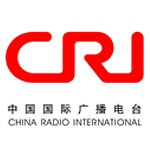
Attracting and keeping personnel is becoming an increasing problem for European businesses in China
As European small and medium-sized enterprises in China try to find a steady footing on the shifting sands of the country’s economy, one thing that is keeping them off balance is staffing.
Maija Kurte, country manager in China of the Latvian company Linearis Translations, which has been in the country for four years, plans to open another office in southeastern China soon, but says staffing will present a challenge.
“Attracting and keeping talent is very hard,” she says. “Staff turnover is always high, and it is good to have potential replacements on hand, but that is difficult to do.”
The European Union Chamber of Commerce in China in its magazine EURObiz, the first issue of which has just been published, says that from many consultations the center has had, it has emerged that the kinds of problems businesses report has changed over time. Regulation, barriers to market access, macroeconomic changes and even smog problems have been high on the list, and problems with human resources and competition have gradually become more prominent.
One of these is the difficulty of attracting highly skilled people to China. Difficulties in obtaining visas, the rising cost of living and severe smog issue are all deterring expatriates from coming to China, the magazine says.
The Business Confidence Survey 2014 issued by the European Union Chamber of Commerce says that attracting and keeping talent was ranked No 3 and regarded as significant by 55 percent of European companies, after the Chinese economic slowdown and rising labor costs. Rising labor costs and a shortage of talent were identified as two main human resources challenges.
The chamber has more than 1,800 members in China, more than 80 percent of them SMEs.
The survey found that the smog issue has been an important reason for the difficulty in attracting talent to China, with 68 percent of companies saying the air quality issue is one of the top three challenges for them.
Another challenge for the companies is attracting talent from within China. The chamber’s magazine says China’s reputation for possessing unlimited, cheap labor is rapidly evaporating. Finding, attracting, training and retaining staff is expected to become even more difficult in the next five years as costs for local labor continue to rise, it says.
Ruben van den Boer, a consultant with the headhunting company RMG Selection, says that in trying to attract new local talent, European SMEs have some clear advantages. First, most Chinese employees prefer the open business culture and international environment that Europe-based companies can provide. Second, Europe-based companies may provide an employee with more career opportunities in the long run, for example international business travel or temporarily working abroad. The ability to practice English or a third language is another benefit European SMEs may offer employees.
However, it seems this bias toward Europe-based companies is evaporating, too. As more Chinese companies expand abroad, the way they do business is becoming more open and international, and similar to that of their Europe-based rivals. Examples include Lenovo, Huawei and Alibaba. For Chinese employees, these international China-based companies have some advantages over Europe-based SMEs.
“For instance, Chinese employees might have better opportunities to fill senior positions compared with in Europe-based companies, where most senior positions, even in China, are often reserved for European citizens,” Boer says.
Read the orginal article: http://europe.chinadaily.com.cn/epaper/2015-04/17/content_20453262.htm





